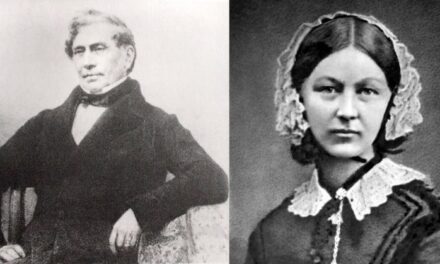The Last Ten Minutes of Luxury
Guests pay for days yet remember minutes. The peak end rule explains why a stay often lives or dies on one high moment and the day of departure. What works, what fails, and how to design the arc so memory carries your brand home.
Read MoreThe Hidden Psychology of Time in Retail: From Scarcity to Timelessness
Airports, resorts, and luxury boutiques don’t just sell products. They sell time — scarce, abundant, distorted, or timeless. This essay explores how time shapes shopping behaviour.
Read MoreWhen the Fix Becomes the Flaw : Why ‘Experience Design’ Is Breaking Retail
Retail has doubled down on experience design to win back emotion and attention. But when design becomes control, engagement collapses into performance.
Read MoreThe Illusion of Genius: Why We Mistake Narcissism for Insight
Not everyone who sounds like a genius is one. Our cultural radar is tuned to confidence, not complexity—narcissism, not nuance. In this piece, I trace the myth of genius through history, psychology, and systems, and suggest a quieter, more connective intelligence that the world urgently needs.
Read MoreWhen Plates Can Talk: How AI Is Reshaping Food Service in Aged Care
Nearly 40% of aged care food is thrown away—unrecorded, unnoticed, unremarked. But a new generation of AI tools is changing that. By tracking what’s actually eaten, systems like AFINI-T offer real-time insight into nutrition, risk, and resident dignity—transforming food from a static cost into a dynamic source of intelligence. This isn’t about surveillance. It’s about finally listening to the plate.
Read MoreSwiss Cheese Thinking: From Disaster Metaphor to Strategic Advantage
We use the Swiss Cheese Model to explain how failures happen—but what if we flipped it? This article explores how Swiss Cheese Thinking can transform traditional strategic planning into a resilience-based, investor-grade framework that absorbs shocks instead of collapsing under them.
Read MoreThe Evolution of Luxury: From Gold Leaf to Inner Peace
Luxury isn’t about wealth—it’s about what’s missing. From postwar security to digital-era silence, what we call “luxury” keeps evolving. This essay explores how rarity shapes desire, how the luxury industry sells emotional scarcity, and why the most coveted experiences today are often the quietest.
Read MoreWhat Happens When the Last Bank Leaves Town?
As more banks close their doors across rural Australia, communities are turning to post offices for basic services—but can they really replace what’s been lost?
Read MoreAirport Retail and the Psychology of Stress: What Makes Travellers Spend?
That overpriced chocolate bar at Gate 14 wasn’t about hunger—it was about control. In this in-depth essay, we explore how Mood Repair Theory explains airport retail behaviour, especially in high-stress domestic terminals, and what airports can learn from global best practice to meet travellers’ emotional needs.
Read MoreThe Future of Banking in Yarram: Local, Accountable, Ours
With Bendigo Bank closing its Yarram branch, locals have a unique opportunity: start a Community Bank, backed by state grants through the Future of Yarram program. This article explores the model, the costs, and the step-by-step process to bring essential banking back under community control.
Read MoreWhat Is Narrative Transportation Theory—and Why Should Regional Tourism Care?
Inside every old town lives a new story—emerging not instead of, but because of what came before.
Read MoreWhy People Misunderstand Regional Towns – and How to Reframe the Story
Regional towns struggle not with invisibility—but with oversimplified mental maps. Drawing on schema theory, this article explores how Gippsland, Daylesford, and New Zealand have reshaped public perception—and what councils can learn from them.
Read More
- Thinking
- Psychology
- Politics
- Disability
- Retail
- Health
- Advertising/Marketing
- Travel/Tourism
- AI Art
- Minerals & Crystals
Nothing’s Ever Good Enough Anymore
The coldest thing in Australia isn't our beer, but how we've learned to respond to hope.
The Pope in the Mirror: Outrage, AI, and the Performance of Power
Trump’s AI images and media theatrics aren’t signs of dementia—they’re a deliberate strategy. What happens when outrage becomes the operating system of politics?
The Ancient Enemy: How a 3,000-Year-Old Story Shapes Today’s Middle East
There's a moment that keeps coming back to me from October 2023. Netanyahu, standing before Israeli troops, invoking a three-thousand-year-old biblical commandment: "Remember what Amalek has done to you." Most heard heated rhetoric. But for those listening carefully—it was something far more specific.
Bilateral Coordination Disorder in Adults: Challenges and Solutions
Discover how Bilateral Coordination Disorder affects adults, particularly in everyday tasks like driving. Learn about its origins, early interventions, and strategies for managing this invisible condition.
Sustainability at Events: Innovative Approaches to Reducing Food Waste
The Growing Challenge of Food Waste at Events In the realm of large-scale events, from sprawling...
When Plates Can Talk: How AI Is Reshaping Food Service in Aged Care
Nearly 40% of aged care food is thrown away—unrecorded, unnoticed, unremarked. But a new generation of AI tools is changing that. By tracking what’s actually eaten, systems like AFINI-T offer real-time insight into nutrition, risk, and resident dignity—transforming food from a static cost into a dynamic source of intelligence. This isn’t about surveillance. It’s about finally listening to the plate.
The Evolution of Luxury: From Gold Leaf to Inner Peace
Luxury isn’t about wealth—it’s about what’s missing. From postwar security to digital-era silence, what we call “luxury” keeps evolving. This essay explores how rarity shapes desire, how the luxury industry sells emotional scarcity, and why the most coveted experiences today are often the quietest.
A tuned prompt by Mike Ososky
etched circuit board pattern::100 dream catcher::95 feathers::23 Stargate portal::10 elliptic...
Green Fluorite – Xiangvaling mine, Hunan, China
Incredibly Gemmy Green Fluorite from Xiangvaling mine, Hunan, China Fluorite, a mineral composed...



















































































































